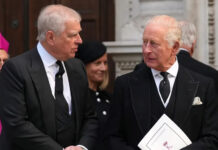Written by- Khalidh Rizwan
The Saudi Arabian government plays a crucial role in organizing and facilitating the annual Hajj and Umrah pilgrimages, which are among the most significant religious events in Islam.
Each year the government invests substantial resources in providing necessary infrastructure, security, and medical support to millions of pilgrims who visit the holy cities including Makkah and Madina. And works closely with the relevant authorities in other countries to ensure that the Hajj and Umrah pilgrims receive the necessary visas and travel documents.
To further facilitate the pilgrims’ experience, Kingdom has implemented several initiatives, including the Makkah Route initiative, which allows pilgrims to complete their immigration and customs formalities in their home countries before traveling to Saudi Arabia. This has greatly reduced the time and effort required for the pilgrims upon their arrival in the Kingdom.
Some of these initiatives also include:
Expansion of the Grand Mosque
Government has been working on expanding the capacity of the Grand Mosque in Mecca to accommodate more pilgrims. The expansion project aims to increase the capacity of the mosque to 2.5 million worshippers.
Improved transportation infrastructure
Investments have been made to improve the transportation infrastructure to facilitate the movement of pilgrims. This includes the construction of new roads, bridges, and metro lines in the holy cities of Mecca and Medina. The Haramain high-speed train has been launched. The train connects Jeddah airport to Makkah and Madina, greatly improving the experience for pilgrims traveling through the Kingdom.
Hajj and Umrah e-visa
Recently the Kingdom launched an e-visa system for Hajj and Umrah pilgrims. The system allows pilgrims to apply for visas online, reducing the time and effort required to obtain a visa. This advanced system reduced visa processing time from 14 days to 5 minutes.
Smart Hajj
The Smart Hajj initiative aims to use technology to enhance the pilgrim experience. The initiative includes the use of wearable technology, such as smart bracelets, to track the movement of pilgrims and provide them with information about the pilgrimage.
Improved health and hospitality facilities
Steps are being taken to further improve health facilities in the holy cities to ensure the safety and well-being of pilgrims. This includes the construction of new hospitals
and clinics, as well as the deployment of mobile health units.
An electronic training platform (Wefadah) was established to train and qualify workers who serves the pilgrims, the platform aims to enhance the culture of warmth and hospitality among workers in the sector of Hajj and Umrah
Following this, a luxurious Hajj chance is yearly granted to the majority of the emerging third-region countries. Every year during Hajj, the Custodian of the Two Holy Mosques HRH King Salman Bin Abdul Aziz hosts 5000 poor and under privileged pilgrims as his guests to perform Hajj.
As in previous years, this time also a certain number of Sri Lankans will be performing the Hajj as the king’s special guests. Under the direction of the Saudi ambassador to Sri Lanka, His excellency Khalid Al Kahthani, these actions are being taken. It is also noteworthy that Umrah opportunities were also given before the corona period.
On June 04th, first Hajj group of Sri Lanka departed for Saudi Arabia. And also, a send-off ceremony was held at Bandaranaike International Airport, where the Saudi
Ambassador to Sri Lanka and other embassy officials were present. Each pilgrim was provided with a Quran and Hajj guidance book which was donated by the government of Saudi Arabia.









